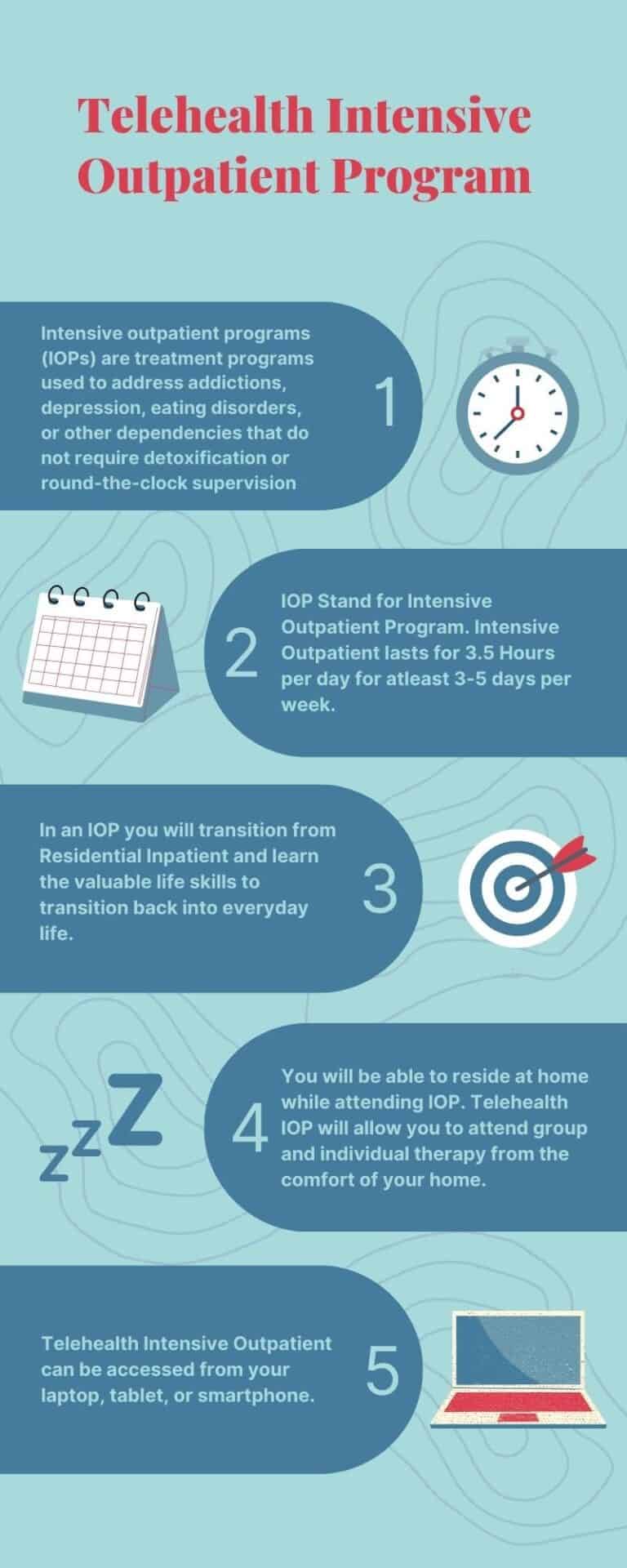Browsing the Complexities of Twin Diagnosis Treatment Within an Intensive Outpatient Program Setting
In the realm of psychological wellness and dependency treatment, the crossway of twin diagnosis provides a nuanced obstacle that requires a detailed and tailored approach. By checking out the details of double diagnosis treatment within this intensive outpatient context, a clearer path arises in the direction of holistic and lasting recovery for those grappling with these intertwined obstacles.
Dual Medical Diagnosis Overview
What is the value of understanding double medical diagnosis in psychological wellness therapy? Dual diagnosis describes the co-occurrence of a substance usage condition and a mental health disorder in a person. It is vital to identify and resolve this comorbidity as it can significantly impact the effectiveness of mental wellness therapy. Without proper identification and administration of both problems, individuals might struggle to achieve long lasting healing and security.
Comprehending double medical diagnosis is essential as it requires a thorough and incorporated technique to treatment. By recognizing the interaction between material use and psychological health and wellness, healthcare companies can tailor interventions to fulfill the one-of-a-kind demands of each person. This holistic strategy not just addresses signs however additionally targets underlying elements that add to the dual medical diagnosis.
Moreover, unattended double medical diagnosis can cause a cycle of relapse and getting worse mental health symptoms. By recognizing the intricacy of double medical diagnosis and providing specialized treatment, health care professionals can sustain individuals in attaining long-lasting recuperation and improved mental well-being.
Tailored Treatment Strategies
Identifying the complex interplay between compound usage disorders and mental health and wellness problems, the advancement of customized treatment plans is vital in attending to the intricacies of dual diagnosis in mental wellness treatment. Customized treatment strategies are customized techniques that take into consideration the unique demands, challenges, and objectives of individuals encountering twin diagnosis. These strategies are created collaboratively by a multidisciplinary group of experts, consisting of psychiatrists, psychologists, social workers, and dependency experts, to make sure detailed and incorporated treatment.
Tailored treatment plans typically include a mix of therapies, drugs, and behavior interventions that target both the substance use problem and the mental health condition at the same time. These plans may consist of cognitive-behavioral treatment, dialectical actions therapy, medication-assisted treatment, specific counseling, group treatment, and family members therapy, to name a few evidence-based treatments. By tailoring treatment methods to individual conditions, tailored plans can resolve the origin triggers of dual medical diagnosis, promote long-lasting healing, and improve total lifestyle for people having a hard time with co-occurring problems.
Integrated Care Technique

Furthermore, the social facet of incorporated treatment entails resolving environmental Check This Out variables that may contribute to the growth or perpetuation important usage and psychological wellness concerns. This can consist of family members dynamics, housing instability, or lack of social support. By including social treatments like household treatment, employment assistance, and neighborhood resources, the therapy becomes more holistic and customized to the individual's details requirements. On the whole, an integrated care technique in twin diagnosis treatment within an extensive outpatient program setup intends to offer thorough, reliable, and personalized like people encountering co-occurring conditions.
Obstacles in IOP Establishing
In the context of dual medical diagnosis therapy within an intensive outpatient program, navigating the complexities of co-occurring substance use conditions and psychological health and wellness conditions offers significant challenges. One of the main difficulties in the IOP setup is the control of treatment in between mental health and wellness professionals and drug abuse professionals to guarantee a thorough therapy technique. This needs effective communication, partnership, and a deep understanding of how these conditions interact and influence each other.
In addition, the rising and falling nature of compound use problems and mental health and wellness problems adds an additional layer of complexity - Intensive Outpatient Program (IOP). Customers in an IOP may experience sudden changes in their signs or compound desires, requiring timely treatment and change of treatment methods. Balancing the intensity of therapy and assistance while enabling clients the versatility to handle their daily responsibilities can be a fragile balance to preserve
Furthermore, addressing stigma and resistance to treatment within the IOP setup can impede progress. Some individuals may be reluctant to disclose their double medical diagnosis or might really feel ashamed, preventing their interaction in the healing process. Getting over these barriers requires a supportive and non-judgmental environment that fosters trust and visibility.

Collaborative Expert Initiatives

Joint efforts likewise include regular communication and details sharing among team members to make certain a cohesive treatment strategy - Intensive Outpatient Program (IOP). This may include case seminars, joint sessions with the person, or shared documents to track development and readjust therapy techniques as required. Additionally, cooperation may include entailing various other medical care specialists such as primary treatment physicians or household specialists to provide alternative support to the person. Eventually, an unified front of professionals functioning with each my response other improves the efficiency of dual medical diagnosis therapy within an intensive outpatient program.
Verdict
To conclude, reliable special info dual diagnosis treatment within an intensive outpatient program setting needs customized treatment plans and an incorporated care technique. Challenges might arise in this setup, yet joint initiatives among experts can aid navigate these complexities. By attending to the distinct demands of people with co-occurring psychological health and wellness and substance make use of conditions, IOP programs can supply detailed and all natural treatment to sustain healing and total wellness.
Comments on “The Advantages of Intensive Outpatient Program (IOP) for Long-Term Health.”